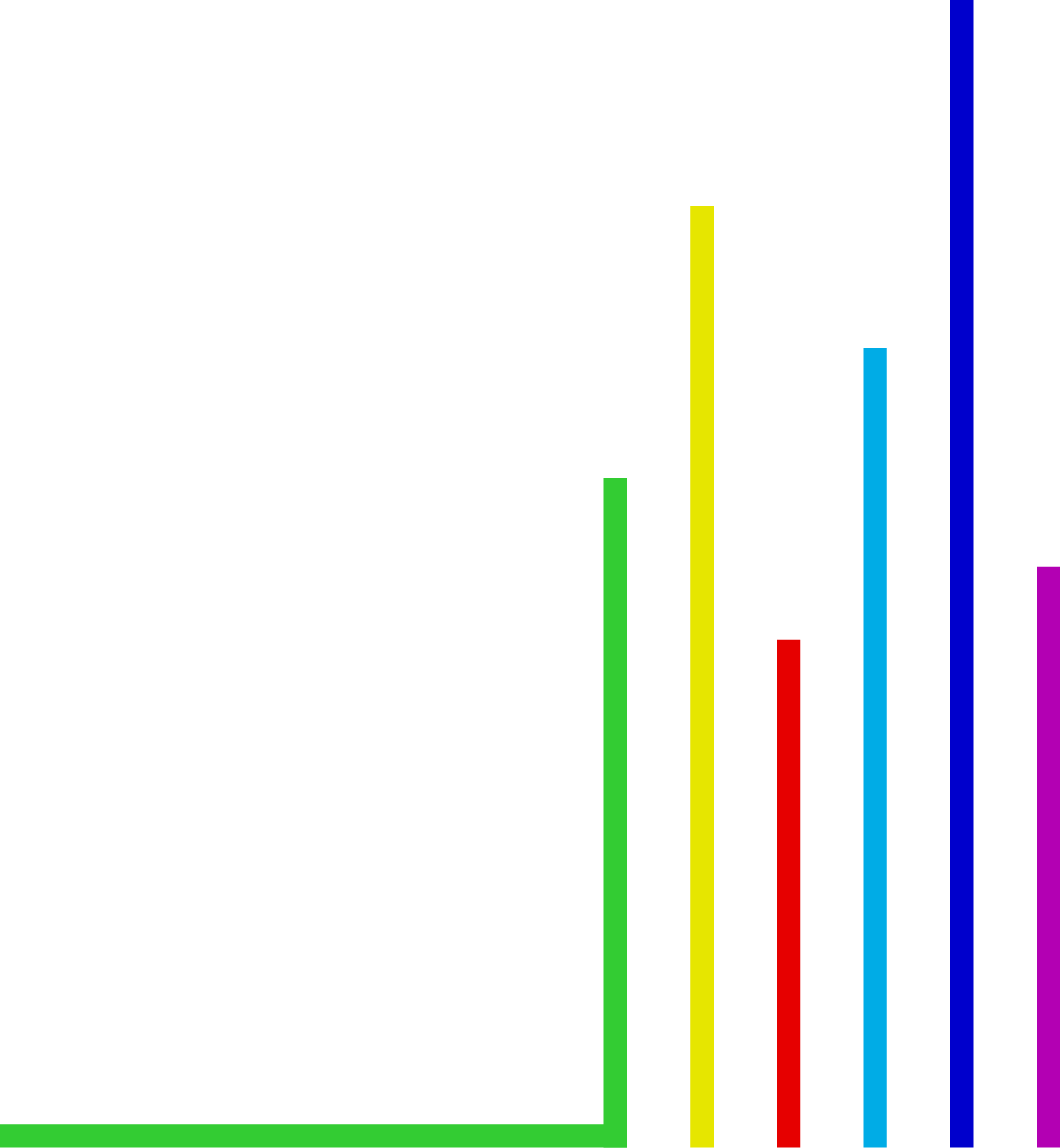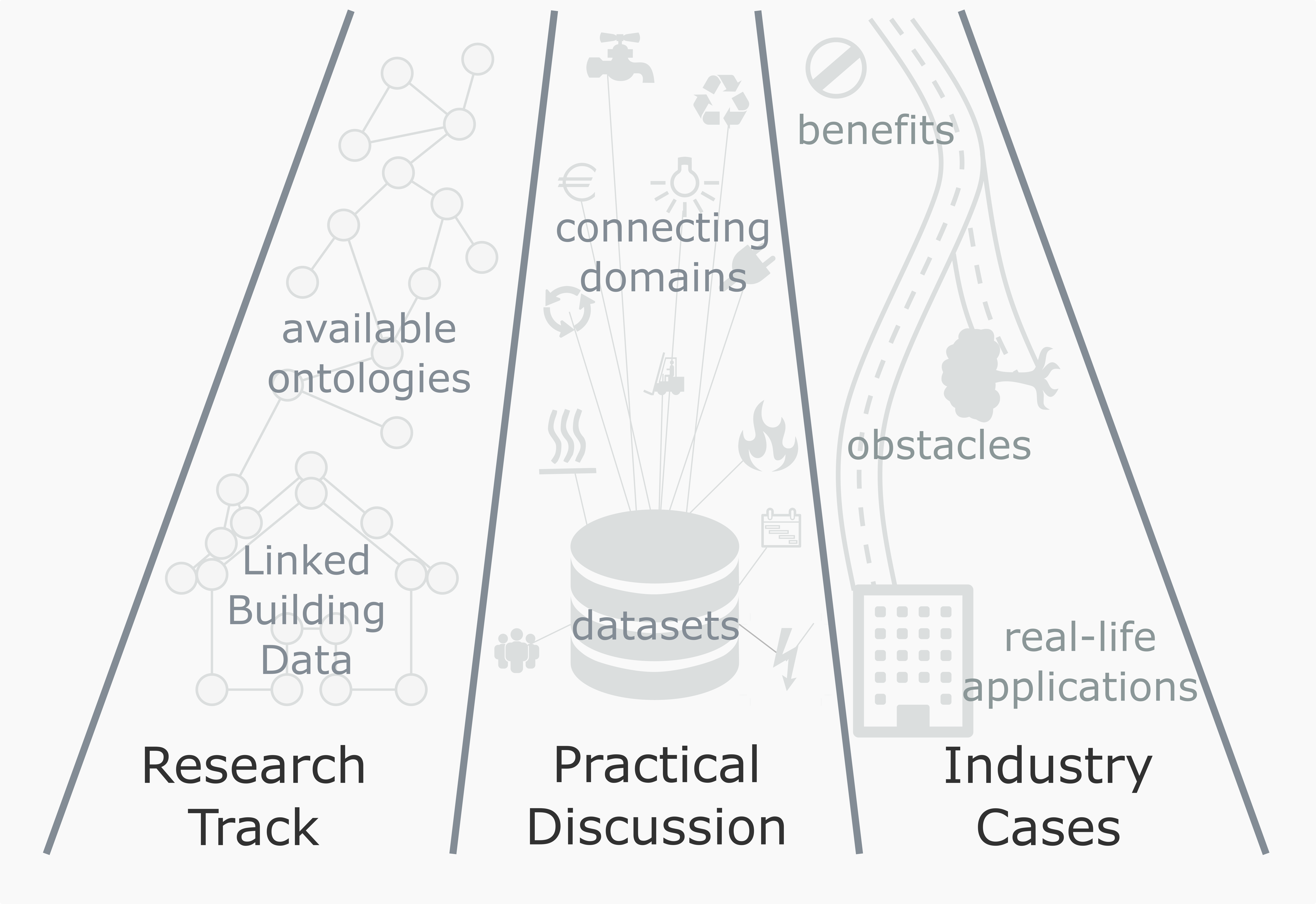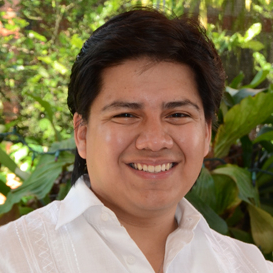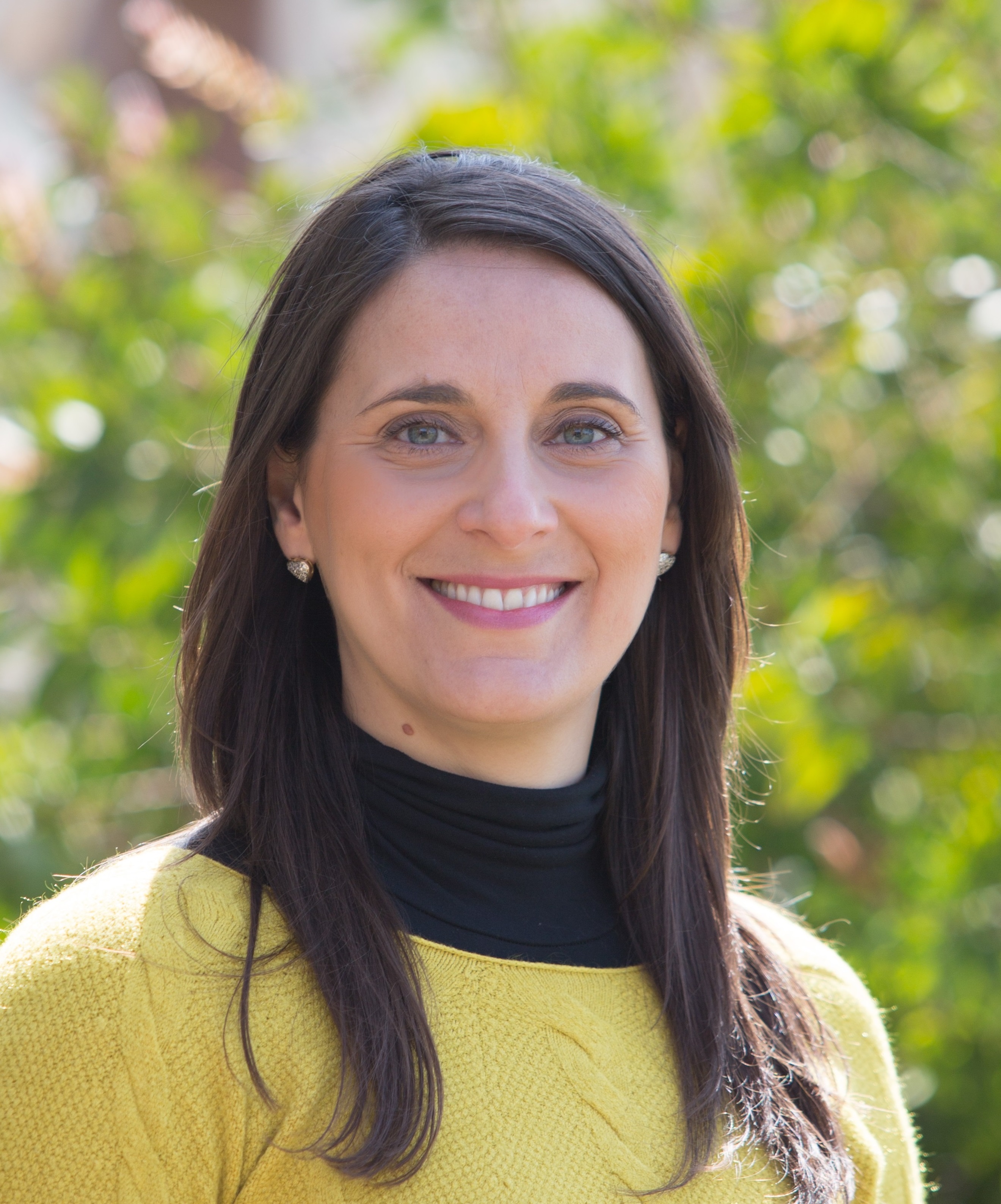


The LDAC workshop series provides a focused overview on technical and applied research on the usage of semantic web, linked data and web of data technologies for architecture and construction (design, engineering, construction, operation, etc.). The workshop aims at gathering researchers, industry stakeholders, and standardization bodies of the broader Linked Building Data (LBD) community. The aim of the workshop is to present current developments, coordinate efforts, gather stakeholders, and elaborate use cases.
This year's LDAC workshop takes place online, yet hosted from within Dublin, Ireland, and is locally organized by the ADAPT Centre of Trinity College Dublin. As in the past years, the workshop covers work from three perspectives: research, practical discussions and industry cases. In short, LDAC welcomes stakeholders from research and practice and serves as a common communication platform to advance and innovate the use of linked data in architecture and construction. There will also be a new additional event held on Friday afternoon involving DBPedia, please see programme for more details.

LDAC aims at providing a forum for technical discussion on the topic of handling data in architecture and construction. A large part of the workshop is concerned with the use of (semantic) web technologies. Research is welcomed on the use of ontologies and vocabularies for representing building data, 3D geometry, product data, geospatial data, infrastructure data, HVAC data, sensor data, and so forth.
Additionally, the workshop welcomes work on how to combine these highly semantic datasets with other data sets, which in the case of architecture and construction consist mainly of geometry and sensor data streams. Using different data storage techniques (semantic data stores, time series databases, key-value stores), the purpose of the LDAC workshop is to investigate ways in which data can be combined into a complete and holistic set of available building data. Practical techniques of combining datasets in the current web-based and data-driven world are explored: Internet of Things, Machine Learning, Digital Twins, Building Information Modelling.
Finally, and most importantly, a number of industry cases are invited, presenting interesting ideas, use cases, solutions or experience reports related to practical applications at any stage of construction lifecycle (design, construction, operations, facility management, renovation). Both success stories and discussions of obstacles in the way of adoption of presented technologies are welcome.
The workshop topics include, but are not restricted to the following:
Due to the Corona pandemic, LDAC is now a fully online event. Because internal costs drop, registration fees are waived. Registration is now free of charge.

Juan F. Sequeda is the Principal Scientist at data.world. He joined through the acquisition of Capsenta, a company he founded as a spin-off from his research. He holds a PhD in Computer Science from The University of Texas at Austin. Juan is the recipient of the NSF Graduate Research Fellowship, received 2nd Place in the 2013 Semantic Web Challenge for his work on ConstituteProject.org, Best Student Research Paper at the 2014 International Semantic Web Conference and the 2015 Best Transfer and Innovation Project awarded by the Institute for Applied Informatics. Juan is on the Editorial Board of the Journal of Web Semantics, member of multiple program committees (ISWC, ESWC, WWW, AAAI, IJCAI). He was the General Chair of AMW2018, PC chair of ISWC 2017 In-Use track, co-creator of COLD workshop (7 years co-located at ISWC). He has served as a bridge between academia and industry as the current chair of the Property Graph Schema Working Group, member of the Graph Query Languages task force of the Linked Data Benchmark Council (LDBC) and past invited expert member and standards editor at the World Wide Web Consortium (W3C).

Dr. Laura Daniele is a senior scientist in the area of ontology engineering and semantic technologies at TNO, The Netherlands Organization for Applied Scientific Research, where she leads the research and standardization activities on semantic interoperability in IoT. She graduated in Electronic Engineering from the University of Cagliari (Italy) and obtained her PhD from the University of Twente (Netherlands). Since 2011 she works at TNO. Her interest is to provide data integration solutions to enable semantic interoperability among stakeholders that need to share data, but use different terminologies, standards and/or heterogeneous platforms. She is the creator of the SAREF ontology for the European Commission, standardized by ETSI, and serves as expert in ETSI SmartM2M. She led several ETSI specialist task forces on the extension of SAREF in various domains. She is currently lead scientist in the H2020 Interconnect large scale pilot, which aims at providing interoperable solutions connecting smart homes, buildings and grids. She is also active in the Alliance for Internet of Things Innovation (AIOTI), where she is the co-leader of the Semantic Interoperability group of WG03 on IoT Standardization. She has authored many international publications and serves as Program Committee member for major conferences and journals in the Semantic Web area.

Dr. Ali Intizar is the head of a research unit for Reasoning, Querying and Real-time Data Analytics at the Data Science Institute, National University of Ireland, Galway. His research interests include Big Data Analytics, Real-Time Data Analytics, Data Integration, Internet/Web of Things (IoT), Deep Learning, Artificial Intelligence, and Knowledge Graphs. He is actively involved in various nationally and internationally funded research projects aimed at providing IoT-enabled adaptive intelligence for smart city and Industry 4.0. Dr. Ali Intizar obtained his Ph.D. (with distinction) from Vienna University of Technology, Austria in 2011.
The LDAC 2020 workshop will slightly differ from its usual set up and program, mainly to accommodate virtual attendance. Key sessions are the plenary sessions with paper presentations. Three such sessions are scheduled, spread over 2 days (17-18 June) in 2-hour time slots. Three keynote sessions are included, each of 1 hour in total, one on each day (17-19 June). Furthermore, break-out sessions are scheduled, in which participants can join parallel virtual rooms for more detailed discussions. These break-out sessions replace the usual technical session, lunch sessions and coffee breaks. Each room will host one of the presenters of the previous session and one LDAC team member. The industry program takes place in three 1h30-2h sessions, spread over 2 days (18-19 June).
As part of the workshop, we invite companies to present interesting cases related to Linked Data in Architecture and Construction. We, therefore, invite you to submit your industry case, presenting an interesting idea, a use case, solution or your general experience reports related to practical applications of linked data at any stage of the construction lifecycle (design, construction, operations, facility management, retrofitting). Both success stories and discussions of obstacles in the way of adoption of presented technologies are welcome.
Please submit a short non-academic abstract where you describe the content of your presentation. Focus on the problem/challenge you were dealing with and how you applied or will apply linked data to overcome it.
The industry track is organised and hosted by NIRAS and ARUP.
Submission of industry proposals is now closed.
Abstract submission deadline: March 13, 2020
Paper submission deadline: March 27, 2020
Notification of acceptance: April 30, 2020
Submission deadline for revised articles: May 25, 2020 (23h59 Hawaii Time - GMT-10)
Registration deadline: May 28, 2020
LDAC Workshop: June 17-19, 2020
Submit a paper of min. 8, max. 14 pages (PDF) at https://easychair.org/conferences/?conf=ldac2020 before the submission deadline (March 27, 2020 - extended). Please follow the LNCS template (Word, LaTeX) and make a submission directly via EasyChair. Submissions will be peer-reviewed by the Program Committee. Accepted submissions will be published as part of a separate volume of the CEUR-WS proceedings.
The paper submission system is now closed.
All submissions are reviewed by at least two members of the Program Committee, which consists of the following members: